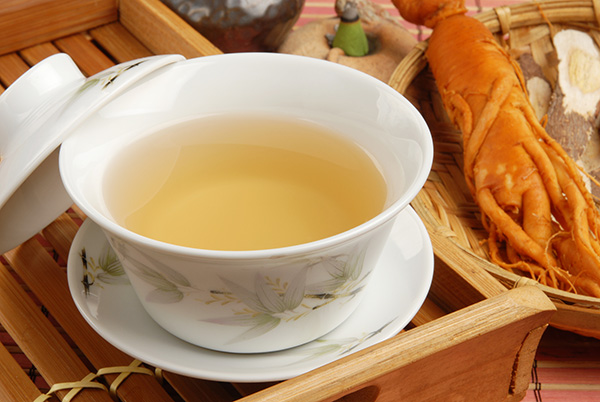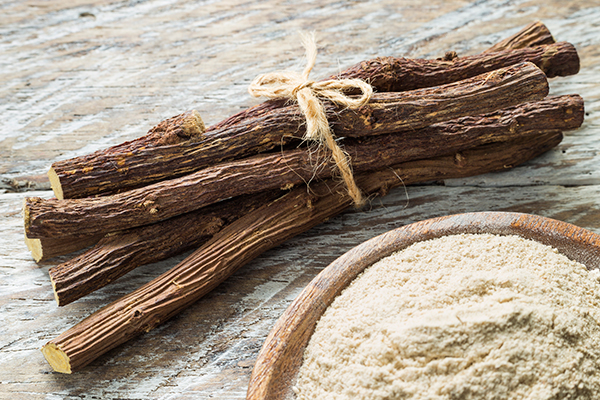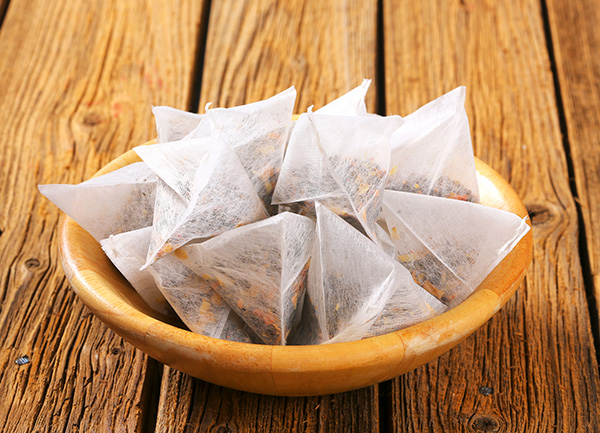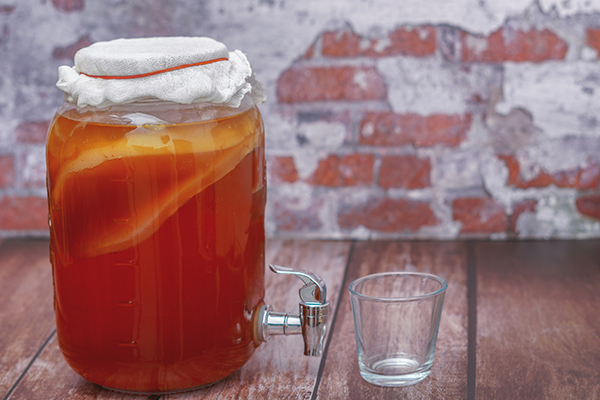What Does Ginseng Tea Taste Like?
Ginseng tea is a popular herbal drink that has been consumed for centuries due to its potential health benefits. But what does this distinctive tea taste like, and how can you make it taste better?

What Does Ginseng Tea Taste Like?
Ginseng tea has a unique taste that can be described as earthy, slightly bitter, and mildly sweet. Some people also detect a hint of spiciness in the flavor. The taste can vary depending on the type of ginseng used (American or Asian) and how it is prepared. Generally, the flavor is complex and may take some getting used to, especially for those who are new to herbal teas.
Earthiness
The earthy taste of ginseng tea is often compared to the flavor of root vegetables, such as beets or carrots. This earthiness comes from the ginsenosides, the active compounds found in ginseng roots. These compounds contribute to the tea’s unique taste and potential health benefits.
Bitterness
Ginseng tea can have a mild to moderate bitterness, depending on the type of ginseng and the brewing method. The bitterness can be reduced by using fewer ginseng roots or brewing the tea for a shorter period. Some people find the bitterness enjoyable and appreciate the complex flavor it adds to the tea.
Subtle Sweetness
Despite its earthy and bitter notes, ginseng tea also has a subtle sweetness that balances the flavors. The sweetness comes from the natural sugars found in ginseng roots. Adding honey or other natural sweeteners can enhance the sweetness of the tea, but be careful not to overpower the other flavors.
Spiciness
A hint of spiciness can be detected in ginseng tea, particularly in teas made from American ginseng or Korean red ginseng. The spiciness adds a unique twist to the beverage and complements the other flavors.
Types of Ginseng and Their Taste
There are several types of ginseng that can be used to make tea. Each type has its own unique flavor and potential health benefits.
American Ginseng
American ginseng (Panax quinquefolius) is native to North America and has a slightly sweeter, less bitter taste compared to other types of ginseng. It is often used to make a milder-tasting tea.
Asian Ginseng
Asian ginseng (Panax ginseng) is native to China and Korea and has a more bitter and earthy taste. Korean red ginseng, a variety of Asian ginseng, is steamed and dried, giving it a distinct reddish color and a spicier, more robust flavor. Asian ginseng is often used in traditional medicine for its energy-boosting and immune-supporting properties.
Siberian Ginseng
Siberian ginseng (Eleutherococcus senticosus) is not a true ginseng, but it shares some similarities in taste and potential health benefits. It has a slightly more bitter taste than American ginseng and may have adaptogenic properties, helping the body manage stress.
What Is Ginseng Tea Similar To?
While ginseng tea has a distinct flavor, it does share some similarities with other herbal teas. For instance, its earthy notes can be compared to those found in dandelion root or licorice root tea. The slight bitterness is reminiscent of green tea, though not as pronounced. The mild sweetness and spiciness are also somewhat similar to chai tea, but ginseng tea lacks the boldness and variety of spices found in chai blends.
How Do You Make Ginseng Tea Taste Better?
If you find the taste of ginseng tea too strong or not to your liking, there are several ways to enhance its flavor. Here are some suggestions:
Add Honey or Sweetener
Adding a bit of honey, agave, or your preferred sweetener can help balance the bitterness and bring out the natural sweetness of ginseng tea. Start with a small amount and adjust according to your taste preferences.
Mix with Other Teas or Herbs
Combining ginseng tea with other teas or herbs can create a more palatable and enjoyable beverage. Try blending it with green tea, black tea, or even a fruity herbal tea to create a unique flavor profile. You can also experiment with adding herbs like mint or lemon balm for a refreshing twist.
Add Lemon or Orange Slices
Citrus fruits can provide a bright, zesty counterpoint to the earthiness of ginseng tea. Adding a slice of lemon or orange to your cup can help mellow out the bitterness and add a pleasant citrusy aroma.
Adjust Brewing Time and Temperature
Experimenting with brewing time and temperature can significantly impact the taste of your ginseng tea. Brewing it at a lower temperature or for a shorter time may result in a milder, less bitter flavor.
Remember to follow the manufacturer’s guidelines on the packaging for best results.
What Does Ginseng Tea Smell Like?
Ginseng tea has a mild, earthy aroma, with a hint of sweetness. Some people also notice a slightly medicinal scent. The aroma can be pleasant and soothing, although it may not be as fragrant as some other herbal teas.
How to Make Ginseng Tea
To make ginseng tea, follow these simple steps:
- Boil water: Bring fresh, cold water to a rolling boil.
- Prepare the ginseng: If using whole ginseng root, thinly slice or grate about 1 teaspoon of the root. If using ginseng powder or tea bags, measure out the recommended amount according to the manufacturer’s guidelines.
- Steep the tea: Place the ginseng in a teapot or infuser, and pour the hot water over it. Allow the tea to steep for 5-10 minutes, depending on your taste preference. For a milder flavor, steep for a shorter time.
- Strain and serve: If using loose ginseng root or powder, strain the tea into your cup, discarding the solids. If using a tea bag or infuser, simply remove it from the cup.
- Customize your tea: At this point, you can add sweeteners, lemon or orange slices, or even mix it with other teas or herbs to create your desired flavor. Remember, it’s essential to taste the tea first and then adjust according to your preferences.
- Enjoy: Sip your ginseng tea while it’s still warm, taking the time to appreciate its unique flavor and aroma.
Final Thoughts
Ginseng tea is a versatile and intriguing herbal beverage that boasts a complex flavor profile. While its earthy, slightly bitter, and mildly sweet taste may not be for everyone, there are plenty of ways to enhance and customize the flavor to suit your preferences.
By experimenting with sweeteners, other teas or herbs, citrus fruits, and brewing techniques, you can create a delicious and satisfying cup of ginseng tea. And don’t forget to follow the manufacturer’s guidelines stated on the packaging for the best results.





